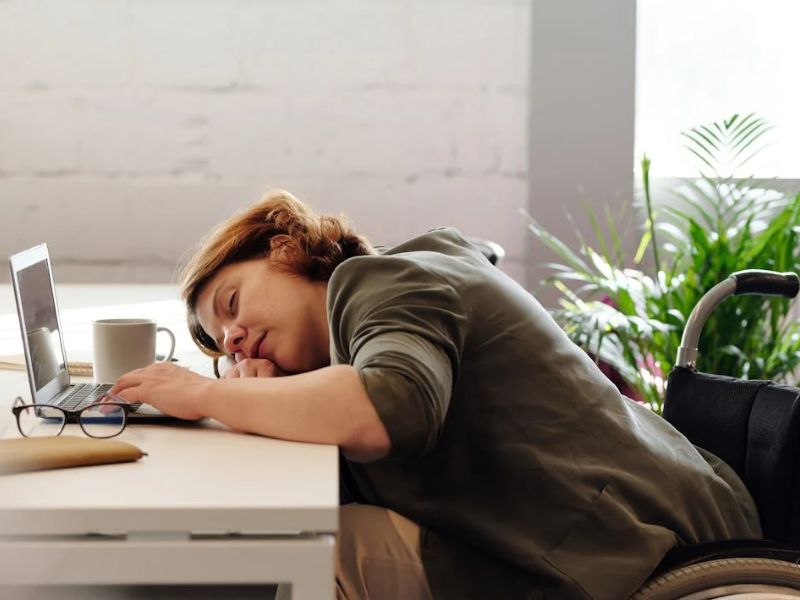Sleep deprivation is awful if you’ve pulled an all-nighter or spent the night tossing and turning. Sleep deprivation can have various health effects even after a single night. The body may ache, paying attention might be difficult, and your mood may be low. As a result, sleep affects nearly every aspect of our body. It affects our immune system, appetite, stress hormones, metabolism, blood pressure, and cardiovascular health.
Sleep is the best remedy for sleep deprivation. You can make the day more bearable with these tips and tricks. Here’s how sleep specialists cope with sleep deprivation.

Image Credit: Pexels/Marcus Aurelius
Be Calm, And Don’t Worry
Sleep deprivation is difficult to overcome, but you should try not to dwell on it. We have a sleep drive that automatically tries to maintain a healthy sleep-wake cycle. Fiona Barwick, director of Stanford Health Care’s sleep, knows her body will take care of itself when she is low on rest.
Get Exposed To Light
Barwick also exposes herself to some bright light first thing in the morning. Light plays a crucial role in our sleep-wake cycle since daylight signals to the brain that it’s time to get up and be active, while darkness signals that sleep is near. Barwick said exposure to light in the morning initially suppresses melatonin, which boosts alertness and mood. Keeping your circadian rhythm in check will also help you sleep better at night.

Image Credit: Pexels/Oleksandr P
Taking A Stroll
Barwick tries to go for walks outside when she can’t nap. Researchers show a 10-minute walk reduces stress, boosts mood, and increases alertness. Moreover, it increases your sleep drive, which should help you sleep. Barwick said, “That helps to ensure further I will get better sleep the coming night.”